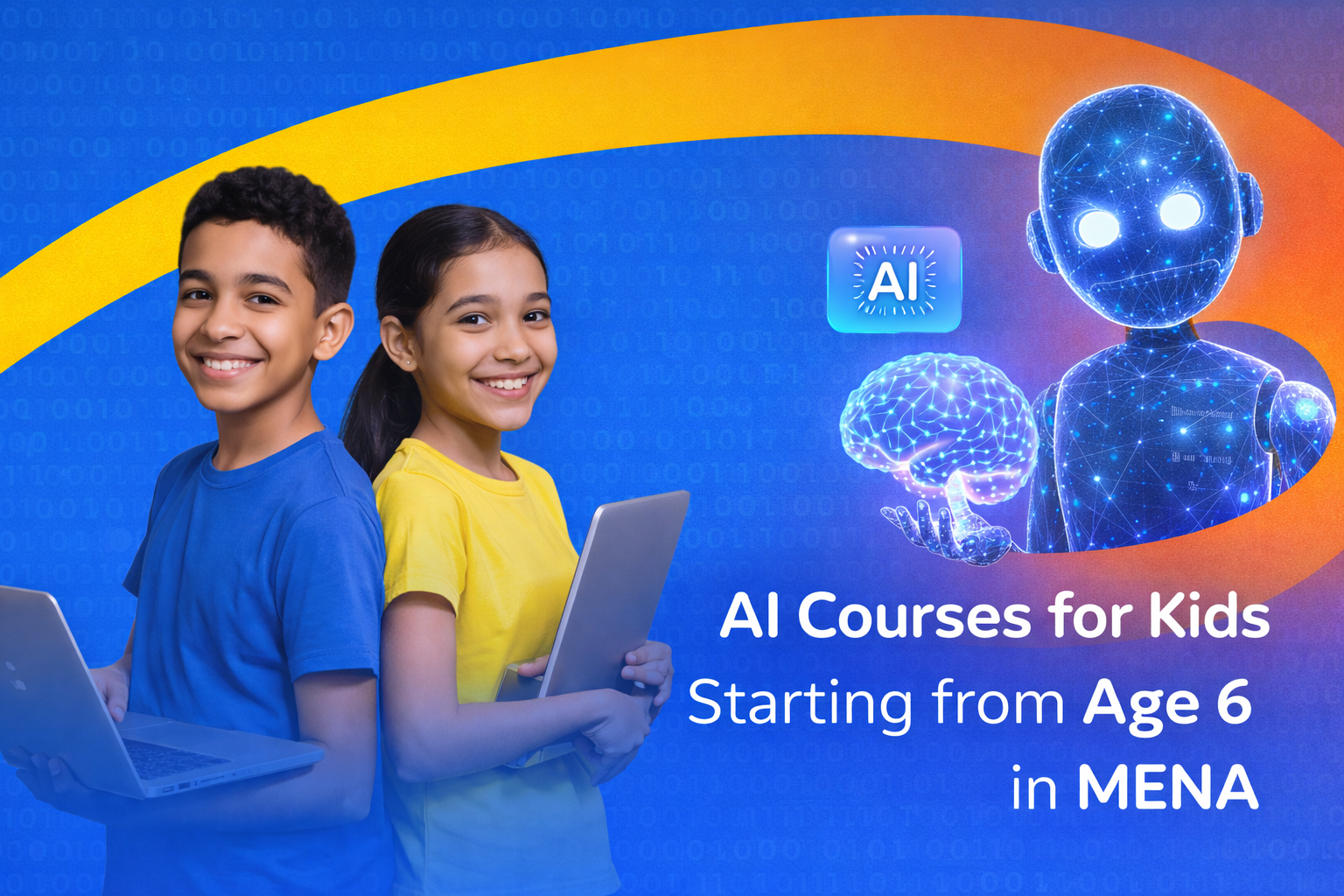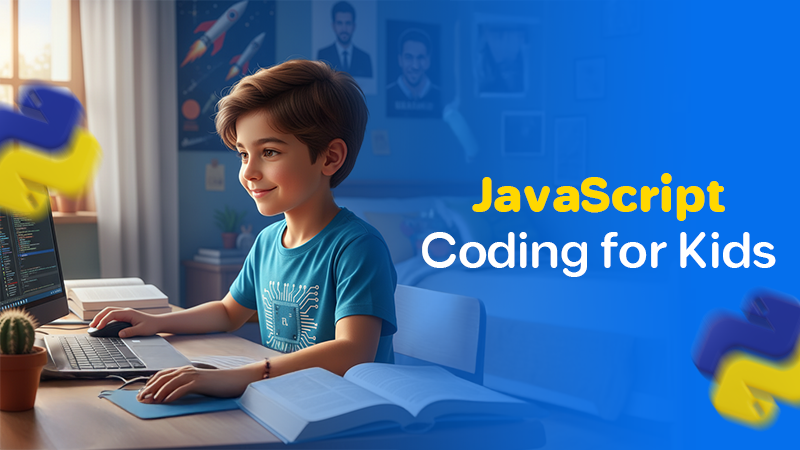
Why Teaching Coding to Kids Unlocks a Bright Future: A Comprehensive Guide.
Programming, also known as coding, is the process of designing, creating, and maintaining computer software. In recent years, there has been a significant increase in the number of children who are learning to code. Many parents and educators recognize the benefits of teaching coding to kids, as it can positively affect their future in various ways.
Teaching coding to kids opens up a world of opportunities, allowing them to develop essential problem-solving, logical thinking, and creativity skills. By introducing coding at an early age, children gain a solid foundation in computational thinking, which can pave the way for future success in technology-driven fields.
Programming is an essential skill for kids to learn, as it is becoming increasingly relevant in today's world. Almost everything we do is now influenced by technology, and knowing how to code can help kids to understand and participate in this digital landscape.
Programming for kids can help them develop skills that can be useful in various fields, such as computer science, engineering, and mathematics. In this article, we will discuss benefits of coding for kids, gain a wide range of skills, and discover career opportunities.
Problem-Solving and Critical Thinking Skills
One of the main benefits of teaching coding to kids is that it helps to develop problem-solving and critical thinking skills. Programming involves breaking down complex problems into smaller ones and coming up with solutions to these problems. This requires kids to think logically and systematically, which can help them to develop their problem-solving skills.
Through coding, kids learn how to approach challenges with a structured mindset, analyze problems from different angles, and implement creative solutions. This not only enhances their problem-solving abilities but also cultivates critical thinking skills that can be applied across various aspects of their lives.
Coding for kids can also help them to develop their critical thinking skills. As children engage in coding activities, they need to consider different approaches to solve a problem and evaluate which one is the most effective, which is a crucial skill they can gain through coding.
This process of analyzing and making informed decisions fosters their analytical thinking, which can be highly beneficial in many areas of their lives. By practicing critical thinking through coding, kids become better problem-solvers, learn to anticipate challenges, and develop a strategic mindset that can be applied in academic, personal, and professional contexts.
Creativity and Innovation
Teaching programming to kids can also encourage creativity and innovation. When children learn to code, they are not only acquiring technical skills but also learning how to create something from scratch. They have the freedom to use their creativity to come up with unique solutions to problems or to create new software or applications.
This process of ideation and implementation nurtures their creativity and innovation skills, which are highly valuable in various fields. By exploring coding, kids develop the ability to think outside the box, experiment with different ideas, and bring their imaginative concepts to life. This creative mindset can empower them to become innovators and problem-solvers in the future.
Learning to code can also help kids to develop their design skills. As children engage in coding projects, they need to think about how their software will look and function. This process of considering user experience, interface design, and visual aesthetics can help them develop their design skills, which are valuable in fields like graphic design or user experience design.
By combining coding with design thinking, kids learn to create visually appealing and user-friendly digital solutions. They gain an understanding of the importance of user-centric design, the impact of colors and layouts, and the effective presentation of information. These design skills can empower kids to create compelling digital experiences and open doors to various creative and technology-driven careers.
Career Opportunities
Learning to code can also open up career opportunities for kids. As technology continues to advance, there is an increasing demand for individuals with programming skills. By learning to code at a young age, kids can develop the foundational skills they need to pursue a career in technology.
They can explore various paths, such as becoming software developers, web designers, data analysts, or even entrepreneurs in the tech industry. Learning coding early on equips kids with a valuable and in-demand skill set, making them well-prepared for the future job market where digital literacy is crucial.
Teaching programming to kids can also help them to explore different career paths. As children engage in coding activities and games, they may discover a passion for a particular area of programming, such as web development, application development, or game design.
This early exposure can help them gain insights into their interests and talents, allowing them to make informed decisions about their future career paths. By nurturing their passion for coding, kids can start developing specialized skills in their chosen area, paving the way for a career that aligns with their interests and strengths.
Math and Science Skills
Programming for kids can also help to improve their math and science skills. As children engage in coding activities, they need to use math and science concepts to solve problems and create software. This integration of math and science fosters a deeper understanding of these subjects and how they can be applied in real-world situations.
By applying mathematical and scientific principles to coding challenges, kids develop a stronger grasp of concepts such as logic, algorithms, patterns, and data analysis. This cross-disciplinary learning approach enhances their critical thinking abilities and strengthens their problem-solving skills, providing them with a solid foundation in math and science that extends beyond coding.
For example, when programming a game, kids need to use geometry and trigonometry to create realistic movements and animations. They also need to apply physics concepts to simulate gravity and collisions accurately. This interactive process not only allows them to develop their math and science skills but also engages them in a fun and enjoyable way.
By actively applying mathematical and scientific principles to their coding projects, kids gain practical insights into these subjects, making connections between theory and real-world applications. This hands-on approach to learning math and science through coding fosters a deeper understanding and appreciation for these disciplines, setting the stage for future academic success and a well-rounded skill set.
Persistence and Perseverance
Programming can also teach kids persistence and perseverance. While coding, kids often encounter errors or bugs in their code. They need to learn how to troubleshoot these issues and find solutions to them. This aspect of coding fosters the development of important life skills such as persistence and perseverance.
By engaging in coding activities, children learn the value of not giving up easily and the importance of staying determined to overcome challenges. Through coding, kids understand that mistakes and setbacks are a natural part of the learning process and that they provide opportunities for growth and improvement.
This cultivation of persistence and perseverance through coding prepares them for future endeavors and instills the mindset of resilience and tenacity, making them future-ready kids through coding. So, if you don’t consider teaching coding to kids, you have to think again as programming is the language of the future.
By learning to code, kids can develop a growth mindset where they see challenges as opportunities to learn, grow, and innovate. This mindset shift is a significant benefit of coding for kids as it extends beyond the realm of programming.
When the children face coding challenges, they get encouraged to think critically, problem-solve, and explore alternative solutions. This iterative process of trial and error fosters resilience and persistence, enabling them to persevere in the face of difficulties, which is a significant skill they gain through learning to code.
This growth mindset cultivated through coding equips kids with valuable skills applicable in various areas of their lives. They learn to embrace challenges, view setbacks as learning experiences, and develop the confidence to tackle new and unfamiliar tasks. Building resilience and persistence through coding empowers kids to overcome obstacles, adapt to change, and thrive in an ever-evolving world.
Teaching Coding to Kids is an essential skill and a critical step in our kids' careers from childhood, especially considering the abundance of resources and tools available for learning. By leveraging online coding platforms like www.iSchooltech.com, it has become easier than ever to enroll your kids in these online coding classes and unlock the benefits of coding education.
Through iSchool's platform, students can enjoy flexible dates for their coding sessions and have access to a private profile that provides all the necessary details, including session materials, recorded sessions for revision purposes, weekly reports for parents, and many other benefits.
Building coding skills through platforms like iSchool helps children become future-ready and enhances critical thinking and problem-solving abilities, setting them on a pathway to success and empowering them with digital literacy skills. At the end, we can say that teaching coding to kids is considered essential in their early life, through which they gain a great skills and opportunities.
iSchool aims to teach students aged 6 to 18 the fundamental principles of programming languages, beginning with simple concepts such as syntax, variables, data structures, and so on, and progressing to more complex concepts such as polymorphism, concurrency, and so on, using interactive languages and tools such as MIT Scratch, Unity, Unreal Engine, and others.





